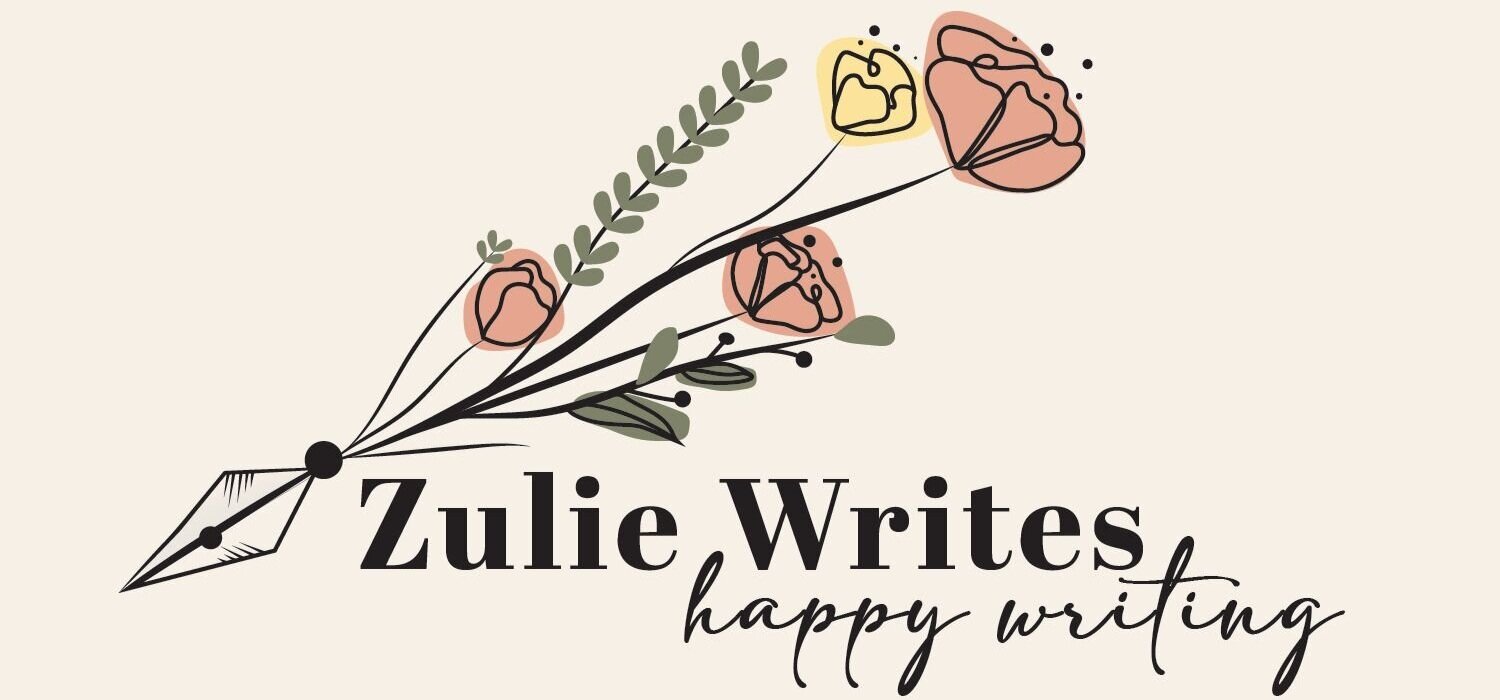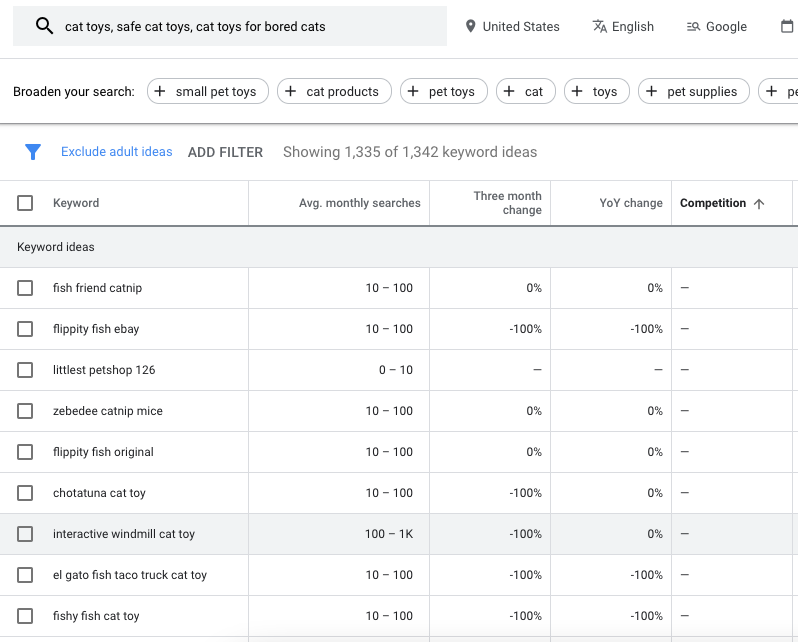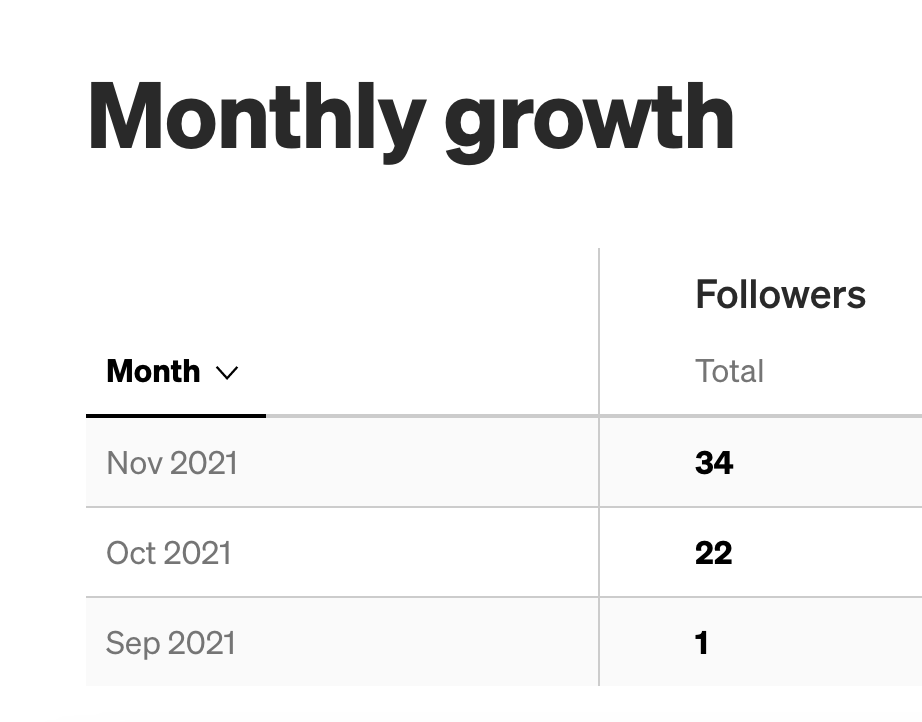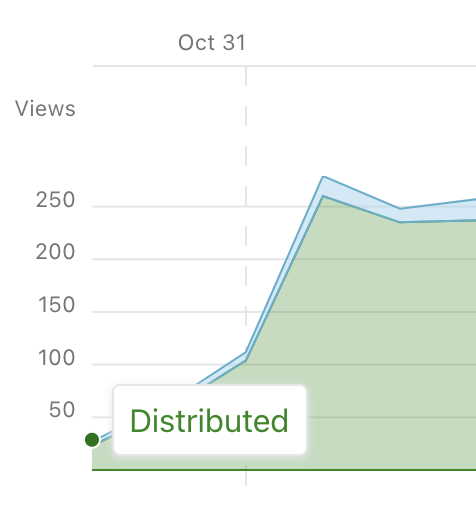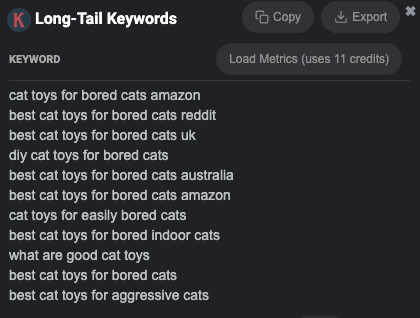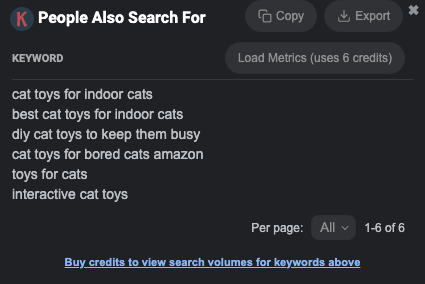How to Easily Rank on Google Using Medium in 6 Steps
You’ve stumbled across this article because you’re a writer on Medium and you have heard whispers that it’s good for SEO. Maybe you’re wondering how to rank on Medium. Maybe you know the basics of SEO on Medium, maybe not. This guide is a step by step SEO guide to the basics of SEO on Medium. I’ve accidentally ranked on Google’s first search result pages more often than I can count, without knowing anything about SEO. How? Because SEO on Medium is so easy, you can do it by mistake.
Prefer to watch the video? Check it out here:
Why is SEO so hard? Because you’re thinking like a writer, and not a search engine. Whether you’re a regular writer or trying to build a Medium marketing strategy, this guide will be helpful to you.
This guide will walk you through:
What SEO is.
Why SEO on Medium is so easy for beginners.
All the free tools I use to maximize SEO on Medium. You can spend extra money if you want to, but it’s 100% optional!
How to use the basics of SEO on Medium to leverage the power of Medium and get more views.
Let’s jump in!
1. What is SEO on Medium?
The first step to understanding SEO on Medium is understanding what SEO is in the first place. SEO is Search Engine Optimization. Tons of content is uploaded to the web every single day. When someone searches for something on Google, Google has to decide what to show them. What content best suits the needs of the searcher?
Obviously, writers want their content to reach the right eyeballs. By understanding the rules of what Google is looking for, it’s simple to give Google what it wants. You’re effectively telling Google what your article is about and who would be interested in reading it.
Let’s say you write an article about cat toys and you want people who are searching for the best cat toys to find your article. SEO ensures that your article will be front and center on page one, rather than languishing on page 50 of the search results where nobody ever looks.
2. Research for SEO on Medium
Before you begin writing the article, it’s important that you’ve researched your audience and your keywords to write a good article that will be easy to maximize SEO on Medium. This section will walk you through how to do that.
Define your audience.
Before you even think about keywords or writing your article, I want you to start by defining your audience. Who are you writing for? What are their problems? What do they struggle with? What brings them to Google today?
The closer you can get to defining your target reader, the easier it will be to optimize for Google. For example, let’s go back to our cat toys. Perhaps you are writing an article for folks who own long-haired cats that get easily bored, but who are concerned about the safety of their pets. That’s a much better target audience than just “people who have a cat.” This is relevant for all SEO, not just SEO on Medium.
This will help you begin to come up with content ideas that will be helpful for your audience. Plus, there’s so much competition on Google - you have a small chance of ranking for “cat toys” but you stand a much better chance of ranking for safety-conscious cat toys.
Keyword research
Next, you’re going to do some keyword research. I recommend you start with Google’s own native tool, Keyword Planner. By identifying your target audience and some of the problems they have, you should have come up with a list of topic ideas already, such as “cat toys,” “safe cat toys,” “cat toys for bored cats,” and so on.
Pop those into Google’s Keyword Planner. This is going to show you some important metrics and additional options.
The results show me a lot of interesting information. I can see the traffic for the keywords I inputted, but also the traffic for a bundle of extra keywords that Google suggests to me. This both gives me content ideas and gives me an idea of how hard it would be to rank for them.
You should ignore “competition” for any article that you’re trying to rank with SEO on Medium. Google’s tool is aimed at people who want to purchase the ads at the top of search results, and competition is how hard it would be to win that bidding process. You’re not bidding - you’re trying to rank organically. All you should look at is the traffic level and how much it’s changed year-on-year. You’re looking for keywords that:
You could easily write an entire article on
Have relatively high traffic levels
Ideally, are increasing year-on-year (or at least not decreasing)
Quick note: if the keyword you’re dying to write an article about has 0 traffic, write it anyway! 15% of the daily traffic on Google is for keywords that have never been searched for before. You might rank for those! Furthermore, it’s better to get one reader who is 100% interested in what you have to say than rank for a keyword with 1000 viewers who are not your target audience.
Now take your shortlist of keywords over to my second free tool, Ubersuggest.
Ubersuggest is built for folks like you and me who want to rank organically rather than buying adspace, so the tools will be useful. However, there’s a limit on the number of daily searches you can do on the free option. This is why I recommend you start with the Keyword Planner, which has free unlimited searches.
Ubersuggest will show how hard it is to rank for that keyword organically. I can see that “cat toys” is very competitive, but perhaps “best cat toys for indoor cats uk” will be a better option for me.
We’re about to wrap up the keyword research portion of this article! The last step is to take our shortened shortlist and head on over to Google. I use a third tool (also free) called MOZ Bar. It’s a Chrome extension. I will now search for the 3 or so keywords I have to do my last step.
The MOZ bar will show me two things: Page and Domain Authority. Remember how I said using SEO on Medium was basically like getting a free leg up? That’s because Medium has a high domain authority. Domain authority is how much Google trusts that website in general. Medium has a ton of high-quality content, and lots of people link back to Medium articles, so Google reckons it’s a good authority on whatever subject that crops up there. Page authority is the same thing, but for the specific page rather than the whole website. Pages get authority when people link to them. If you write a strong article on cat toys that everyone else links to when they write their own cat toy guides, that article will have high page authority.
You should also look for:
Date. Google loves new stuff. The newer the better. If I see an article by Bustle was written in 2018, that means I have a good chance of ousting that article, no matter how high its domain authority is. Google understands that readers want up-to-date information.
Quality. Check out those articles on the first page. How good are they? Could you do better? How long are they? Google wants to give readers long, info-filled articles that are going to answer their questions. If you can write a longer article that considers additional angles, you have a chance to boot other articles from that first search results page.
Googling “Cat toys for bored cats” reveals that the very top search result has a relatively low PA and DA, although it was written very recently. Other articles have higher domain authority, but the page authority is low and they weren’t written that recently. And no shade to Bustle, but I know I can write a better article than theirs. Using SEO on Medium gives me an even better chance.
Now we have an audience, a keyword, and a target search result to dethrone. Finally, we can get onto the fun part: writing the article!
3. Writing Articles for SEO on Medium
You are ready to write the post that will solve your reader’s problem!
Quick note: Why SEO on Medium and not, e.g., WordPress or my own Squarespace? Is Medium good for SEO? Yes. There are a few key reasons.
Medium is easy to get started. Only write! You don’t have to faff around with domains, formatting, or anything else. You can open up a draft and start typing away with no fuss.
High domain authority. Remember how I was talking about domain authority? Medium’s DA is 95/100. This gives you a huge leg up without even doing anything else.
Pubs = page views, even for beginners. Another factor Google takes into consideration is page views. It wants to know it’s surfacing good, popular content. If you get views on your Medium article, Google will rank it more highly. Publications on Medium mean that even if you’re a total beginner with 0 followers, you can still get some views on your article. I started a secret Medium account and got 1.3k+ views on my article - with 12 followers - all because I published it in a publication. This helped it rank on Google.
Struggling to find the best publications? Want to get accepted to your dream publication? Do you want to see your article get tons of views because you’ve found the perfect audience? My course, Medium Publications 101, walks you through everything you have to know to get started with publications on Medium. Get results today.
Open up a Medium account if you haven’t already and open up a new draft. Medium for brands is also heavily underutilized, so if you represent a brand or company that isn’t on Medium, remember that you can and should have a presence on Medium! If you’re selling stuff or services, start importing onto Medium today.
NB: if you have your own website, you can also write the article on your website and import it onto your Medium account using their canonical import tool. The canonical tool tells Google that the one one your website is the original, and the Medium duplicate content is just the imported copy.
Your Medium article should be a good, fun, entertaining and informative article to rank on Google. It should be long - at least 1,000 words, but the longer, the better. The keyword you’ve settled on should have a 1%-1.5% density.
This means if your article is 1,000 words long, when you Ctrl+F your keyword, it shows up 10-15 times. Any more and you run the risk of Google thinking you’re trying to game the system. Any less and Google won’t know what your article is about.
You should also try to put your keyword in bold, italics, or quotes where it makes sense. It should appear in the first 100 words, and the last 100. This is all about helping Google understand what your article is about and who would benefit from reading it.
The main thing is to keep it organic. As Google’s algorithm gets better, it’s less about hacking the algorithm and more about writing good content. Keyword stuffing won’t get you far. Quality articles will.
4. Final Touches on Your Article
At this point you’ve nailed down your audience, you have a target keyword, you’ve scoped out the competition and you’ve written an incredible article. There are only a few final steps to give it the best chance possible of ranking using SEO on Medium.
Related keywords
First, check out (yet another) (still free, though!) Chrome extension called Keywords Everywhere.
Keywords Everywhere’s main functionality is to give you (more) keyword ideas, but that functionality isn’t free. However, it also offers another very valuable service: related keywords. When you Google stuff, Google will also be scanning articles for keywords that are related to your search to ensure it gives you useful results.
For example, I might write an article about ranking on SEO on Medium for “bored cat toys,” and use that keyword enough to rank for it, but obviously, my article isn’t about cat toys for bored cats. Google will read every article to make sure the article is about the keyword. It does this by scanning for related search terms. And this is what Keywords Everywhere gives us.
When you search for something on Google, the KE Chrome extension will provide:
Related keywords
People also searched for
Long-tailed keywords
I normally copy-paste those into the bottom of my article. From there, I add those keywords in (again, where it makes sense, organically) or I’ll replace some of my existing keyword instances with one of the related ones. For “cat toys for bored cats” I can see that there are plenty of related keywords I could include to give Google an even stronger idea of what my article is about. As I include them in my article organically or decide they aren’t relevant, I’ll delete them from the list.
SEO on Medium with Medium’s native SEO tools
Besides having an ultra-strong DA, Medium also has a few tools designed to help you with SEO on Medium.
First, there’s what I call a “show title” and an SEO title. The show title is what’s shown to people on Medium, people who get your story in their emails, and so on. The SEO title is what Medium shows to search engines like Google. You can give your article a spicy show title and an SEO-friendly SEO title.
Example: your article about cat toys for bored cats might be given an SEO-friendly title of “16 Cat Toys for Bored Cats.” Your show title might be something more like “These 16 Toys Will Save Your Bored Cat From Destroying Your Home.” That second one is less SEO-friendly, but will get more people to click. With Medium’s SEO title tool, you can have the best of both worlds. You can also edit the Medium SEO description - Medium also gives you the opportunity to edit the text that show sup under the title on the search results page. Make sure it includes your keyword.
Medium is invested in helping you with SEO on Medium - more views for you, is more views for them, after all - so take advantage of the tools they offer.
Alt text and TOC
Many SEO gurus say you should change the alt text on any images you put in your article to include your keyword. I think that’s a dick move. Alt text is there to help people with screen readers fully access your content and it’s crappy to game that for SEO juice. Also, I’m not convinced it does very much. I add alt text to all my photos and videos but I do not optimize them for SEO on Medium or anywhere.
Last, I make use of my fifth and final free tool - a tool that automatically adds a table of contents to your article on Medium, Medium TOC. SEO on Medium (and anywhere) relies on helping Google see what your article is about AND helping readers get the best article possible. A table of contents accomplishes both. Google loves to be able to chunk up your article for fast show results, which it typically pulls from a table of contents. Plus, your reader will be grateful to be able to navigate your article.
5. Don’t Forget Your Brand
Why do you want to rank for SEO on Medium? It feels great to get views on an article, but unless your income is strictly from ad views, SEO should accomplish more than just page views.
As you finish up your article, reflect on your ultimate goal overall. Do you want signups? Affiliate link clicks? Purchases? Include those links. Maybe you’re trying to get potential freelance clients to see how good you are at SEO for their target keywords. If so, give them a way to contact you at the bottom of your article. No matter what, ensure your article is friendly to your ultimate purpose.
To give you an example of how not to use SEO on Medium, I ranked for the keyword “toxic friends” and make very little money from it. Medium pays through royalties when a paying Medium member reads my story. External traffic pays very little, since most readers are not Medium members. It also doesn’t match my brand because most of what I do is help writers grow their blogging empire, not recognize toxic friends. I could add in my email signup link, but that audience doesn’t match so I wouldn't get great signups.
Ensure that your article fits your brand and purpose. It’s no good to rank for a keyword that doesn’t earn money, clients, or signups down the road.
6. Rinse and Repeat
SEO on Medium (and in general) is a mystical, magical, misunderstood beast. There is a lot we don’t know. Want to go for a keyword that allegedly only has 10-100 searches? Go for it. Want to go for a keyword that doesn’t show up at all? Do it - as I said, 15% of Google’s daily searches are brand-new, never-before-searched terms. The more you do it, the better sense you’ll have for what your audience wants from you, and how to target them using Google.
Before I started researching SEO on Medium, I asked myself: is SEO hard to learn? Now I know SEO is one of those things that seems hard, but is actually easy if you put yourself into Google’s shoes. All they want is to show the right content to the right searcher. SEO helps you help them.
This short tutorial should help you get started with SEO, Medium, SEO on Medium, and ranking on Google and other search engines. Medium SEO is not hard if you know how to begin.
